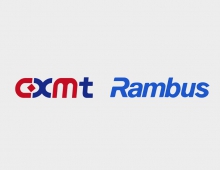
F.T.C. Reaffirms Rambus Antitrust Ruling
The Federal Trade Commission made final its ruling that the memory chip designer Rambus violated antitrust laws, imposing limits on the royalties the company can charge.
The final opinion provides the sharpest criticism to date of Rambus, and legal experts said it would set an important precedent for the broader technology industry.
The order said Rambus violated federal antitrust laws "by deliberately engaging in a pattern of anticompetitive acts to deceive an industrywide standard-setting organization."
Thomas R. Lavelle, senior vice president and general counsel for Rambus, said the company was disappointed with the opinion and would appeal.
The case hinges on whether Rambus illegally obtained a monopoly in the 1990s when it secured patents for two popular types of memory used in personal computers. Rambus was accused of failing to disclose to an engineering council that its patents had been incorporated into an industry standard regarding memory technology.
An administrative law judge dismissed the complaint in 2004, but the F.T.C. overturned that ruling in July 2006.
Rambus, which is based in Los Altos, Calif., insisted for years that it disclosed the patents to the memory makers, Micron Technology and Hitachi, before the standards-setting discussions began. Rambus lawyers also argued that disclosure policies of the council, the JEDEC Solid State Technology Association, failed to specify what Rambus should have revealed to the committee.
On Monday, the commission required the company to hire an agency-approved compliance officer to ensure that its patents and patent applications "are disclosed to industry standard-setting bodies in which it participates."
The order said Rambus violated federal antitrust laws "by deliberately engaging in a pattern of anticompetitive acts to deceive an industrywide standard-setting organization."
Thomas R. Lavelle, senior vice president and general counsel for Rambus, said the company was disappointed with the opinion and would appeal.
The case hinges on whether Rambus illegally obtained a monopoly in the 1990s when it secured patents for two popular types of memory used in personal computers. Rambus was accused of failing to disclose to an engineering council that its patents had been incorporated into an industry standard regarding memory technology.
An administrative law judge dismissed the complaint in 2004, but the F.T.C. overturned that ruling in July 2006.
Rambus, which is based in Los Altos, Calif., insisted for years that it disclosed the patents to the memory makers, Micron Technology and Hitachi, before the standards-setting discussions began. Rambus lawyers also argued that disclosure policies of the council, the JEDEC Solid State Technology Association, failed to specify what Rambus should have revealed to the committee.
On Monday, the commission required the company to hire an agency-approved compliance officer to ensure that its patents and patent applications "are disclosed to industry standard-setting bodies in which it participates."




















